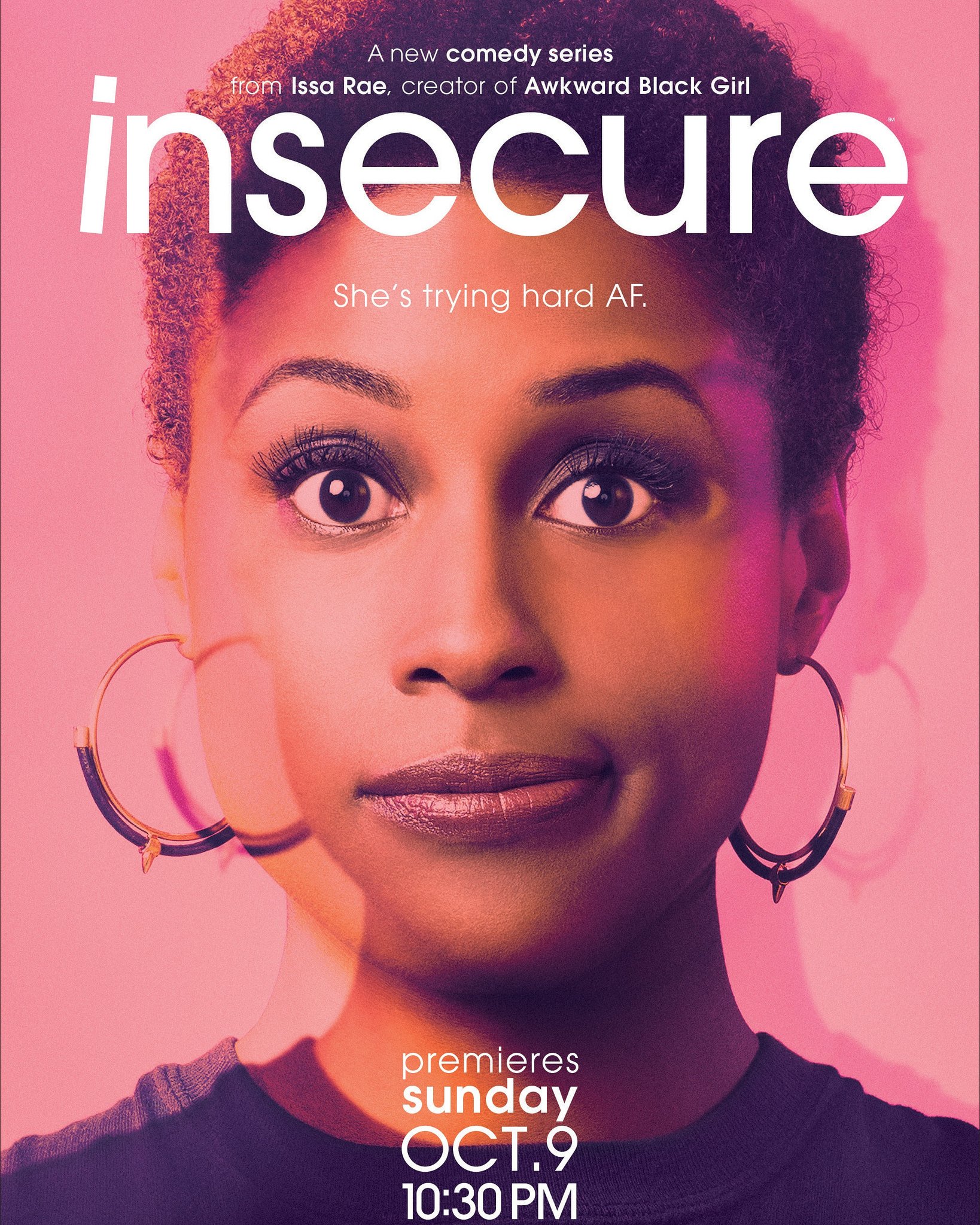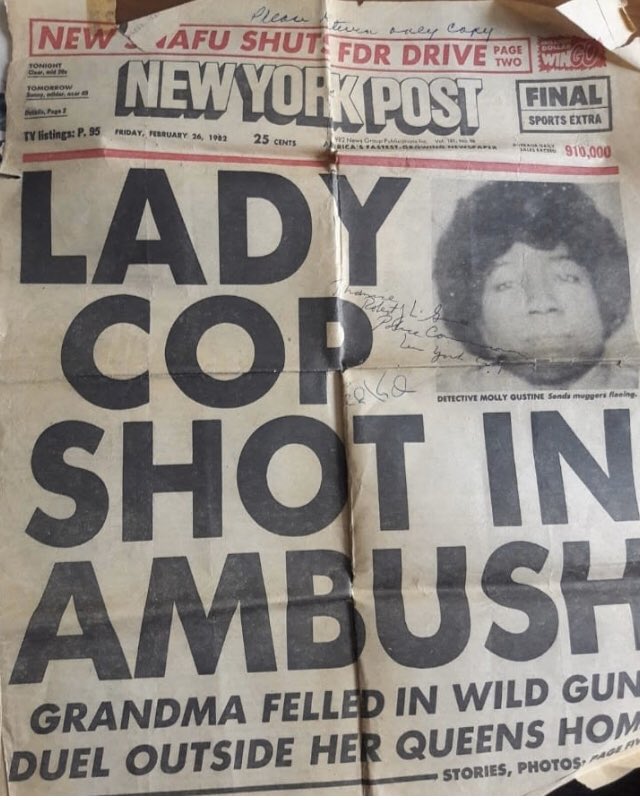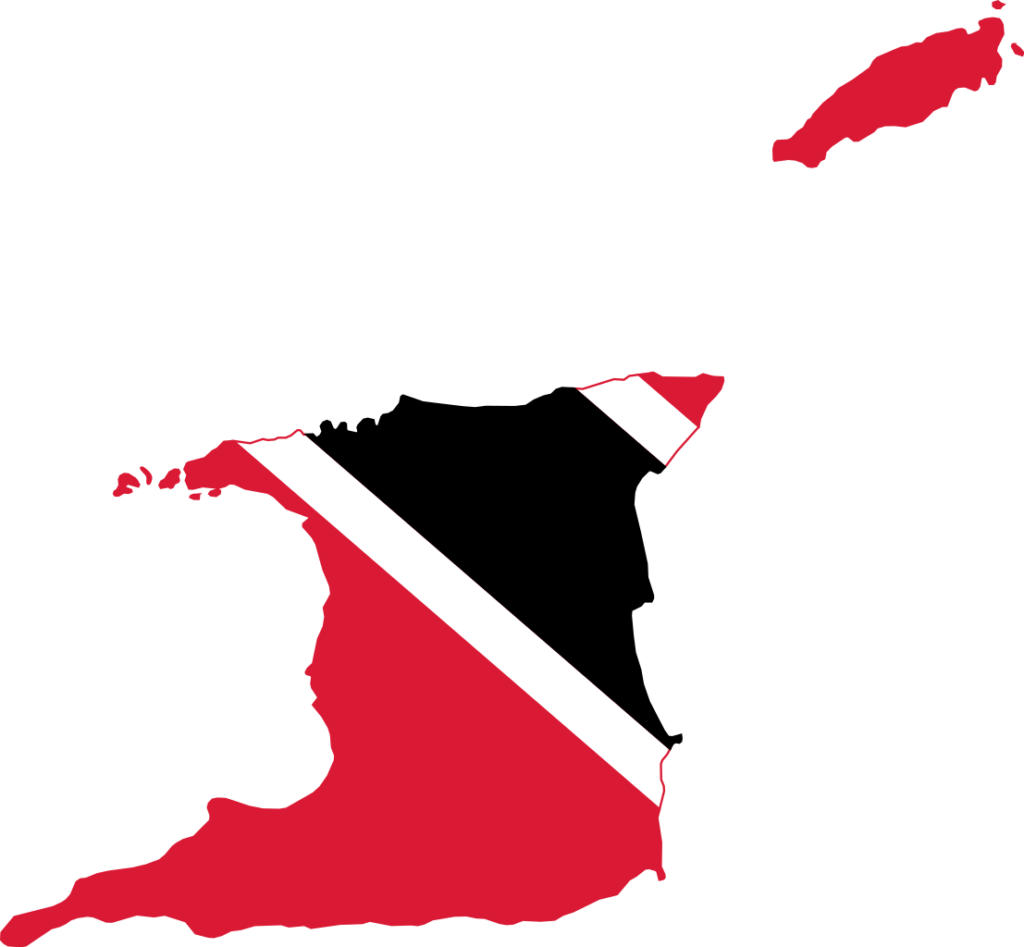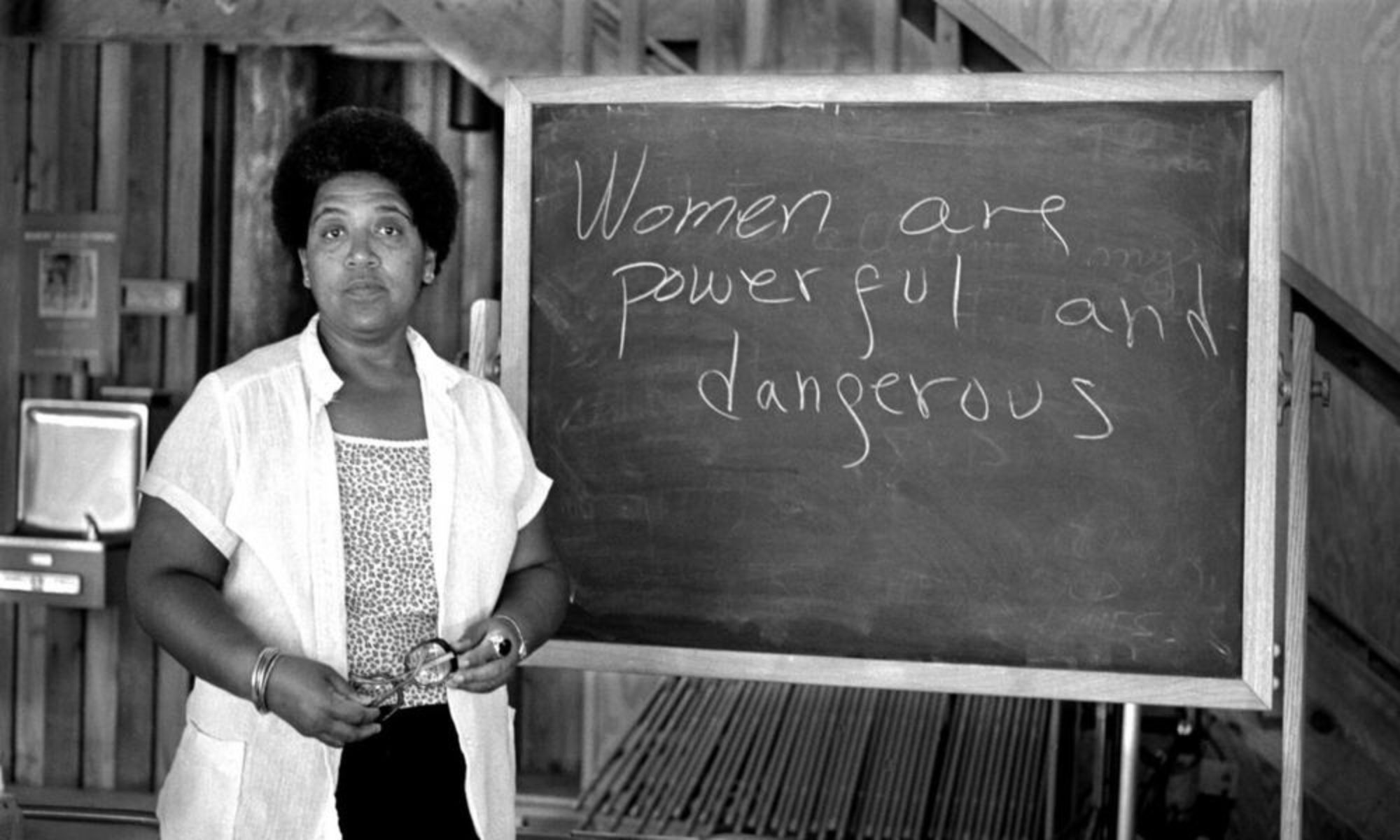I am interested in exploring issues of women’s and civil rights as they relate to women, gender, and sexuality studies, especially the work of Angela Davis during the 1970’s.
Blog Post 5: Checking in

Since the shutdown or whatever we are calling it I’ve just been trying to deal with all the changes, being stuck in the house and not being able to work. Having to keep up with all my classes online and complete all my assignments I have piling up have been increasingly stressful. But nonetheless I am coping the best I can as I’m sure we all are. Hope everyone is doing well and staying healthy.
Watch A Movie
HBO’s “Insecure” is the perfect depiction of modern day womanhood. This show not only gave a voice to women of color, but also opened up honest conversations about dating, colorism, navigating life in a city and so much more. The main character Issa, who has her natural hair, is one of the most desirble characters on the show. For that to be shown on TV, a woman to be desirable with natural hair is a big step up. Oftentimes on television, we are shown that women with long and flowy hair are the only ones considered desirable and especially within the black community, television often tries to conform women that they are only desirable with a specific hair type, when in reality that is not the case. With two female protagonists, we see how each of them try to navigate their lives in very relatable ways. Each character has different experiences and work lives but we still are able to see their similar experiences with sexism and racism at the workplace. Both protagonists who are extremely intelligent go through very real experiences and sometimes handle them better than other times but it feels so genuine to how real women experience life. The show takes a really interesting take on relationships and shows how a relationsip lives after the honeymoon phase and how media influences like pornography and music videos can really take a toll on a relationship. These are relatively newer issues in today’s world and the show’s way of highlighting these issues and legitimizing them is a big deal for everyone. Not only is it an accurate depiction of womanhood, it shows the genuine awkwardness that many people deal with. It’s the most real way of depicting a woman, especially in Hollywood. We are always taught through the media that women should be poised, not too loud, not awkward, not outgoing and not in control of their romantic relationships. We are taught women shouldn’t have sexual desires nonetheless verbalize them. The two protagonists, Issa and Molly do have awkward moments, they are outgoing, they are in control of their relationships. This show is just such a healthy depiction of real life. The characters have healthy relationships with themselves while also showing some dark moments, but they do not let their struggles define them. Issa’s form of self expression is through rap songs she sings to herself in the mirror, they are sometimes an uplifting pep talk, or sometimes a run down of her current emotions. It’s healthy to see when she has issues, she does not have to run to someone to fix them and she has a healthy relationship with herself in order to express her feelings.

Blog Post 7: How to Annotate a Text
Step 1: Log in to hypothes.is
Step 2: Go to the latest chat
Step 3: Click on ” Visit annotations in context” and read the article
Step 4: Highlight a excerpt
Step 5: Pick “Annotate” option
Step 6: Write your annotation
Step 7: Post!

Blog Post 6
I interviewed my paternal grandmother who in the 1970’s was living in Bangladesh. During this time period, there was a war going on between Bangladesh, which was then called East Pakistan, and Pakistan, which was then called West Pakistan, to be it’s own country. There were many women who were actually freedom fighters at this time, though she wasn’t one of them, she watched firsthand some of her friends become one. It was a gruesome war with many casualties and horrific sights to see. In such a time like this, it was really unusual for women to be anything but housewives, but to put themselves on the front lines of this war was a giant step for the feminist movement. It was a tragedy that it took a time period like this for people to see the full resilience and strength of a woman, but it slowly started to progress from then on.
Blog Post 5
I’ve been doing okay during this time, I work as a teller as Chase and since banks were considered essential I was still working for the most part up until recently where the branches in my district closed for two weeks. I feel grateful for still being paid for my time off and being able to comfortably pay my bills in this time of such economic distress. I feel like I’ve lost all track of time and I have this sense of I feel like I have so much to get done at home, but then I realize I can just get it done the next day because it’s not as if I’m going anywhere anyways. I also feel this constant sense of anxiety because I can’t wait for all of this to be over so normal life can resume. Hope everyone is safe and doing well.
Blog Post 7: Hypothes.is how to: Instructions for how to use hypothesis to annotate a text
I had a little trouble at first. I am sure there are many ways, but this is how I did it.
First, I logged in to my hypothesis account and then I installed the chrome extension to make things easier, but it was not working.
I then went to the website itself ( https://hypothes.is/ ) and clicked “insert link” at the top, where the other tabs are. Copy the URL of the passage or text you are going to annotate and paste it.
The website should pop up and on the right hand side of your screen, the hypothessis attachment should be there. Click the “<” to extend the menu and it should be visible. There are two options, I believe by default it will be set to public. Before uploading your annotations, at the top of the menu, set it to the WGST 1001 Spring 2020.
After that you can begin annotating. HIGHLIGHT (highlight the title as you normally would then the option “annotate” and “highlight” appears. Click highlight) the title of your passage and it should appear at the very top, This easily indictes the selection you were reading to the person who is viewing. To annotate parts of the text, highlight the section as you normally would and the options “annotate” or “highlight” will appear, click annotate. This will open a text bar for you to place your annotation. Continue to do that for the rest of your annotations.
When I was finished, I clicked “Post to WGST 1001 Spring 2020” for each annotation (as I could not find a simpler way to upload everything at one time) and it was posted to the group page.

Blog Post 9: Disidentifications
To disidentify with something means to go against or disagree with the representation or stigma placed against whatever you define yourself as. I think in order to disidentify, you must first be able to identify. By this I mean, you must be able to have this self awareness of who you are and then decide if these social norms or rules places against that category represents what you think it should. If it does not, that is where one disidentifies.
Although I am female, I sometimes disidentify with it. I had many instances where I was expected to “act like a lady,” do houework, or dress a certain way. To many people this is what a female is supposed to committ to, but I disagree with it and therefore, push boundaries. I wear sweats and hoodies and sneakers almost everyday, I do things that my mother for example, would have never done at my age as a female. She would have never disobeyed her mother telling her to clean up while her brothers did absolutely nothing. I did not accept these norms, and I created my own.

Blog Post 6: Oral History

I interviewed retired NYPD Detective Mollie-Ann Gustine. She recently turned 90 years old in February. Given her position, she remained at the frontlines for many social and political movements. Since she is 90 she remains in a nursing home currently so I had limited time to engage with her, so I shall sum up some things I’ve learned about this amazing woman.
Retired Detective Mollie–Ann Gustine served with the NYPD from 1963 to 1983. Being an African-American woman at this time, she faced much adversity. She marched beside Malcolm X, became the first African-American woman to become a Drug Enforcement Administration (DEA) delegate, and she was gunned down in Queens in the 80s by three teens who attempted to rob her. She fired back after being shot in the chest and arm and of course, she survived the injuries.
Though it isn’t much information about her life in the 60s, she is nonetheless a hero and was only recently commemorated for her work with the NYPD.
4/4/20 UPDATE
It is with a heavy heart that I am announcing the passing of Ms. Mollie. She passed away last night (4/3/20) from coronavirus (COVID-19) complications.
Oral History Interview
I interviewed my mom because she grew up in the 70’s and 80’s in Trinidad and Tobago and she had a rich and memorable childhood.
Question: What were the early years of your childhood like?
Answer: I was born in the sixties and I started elementary school I think in 1968. Prior to that I guess when I was four it was customary to go to a little local school but it was held at somebody’s home where they would teach little kids. After that I went to what we called “infants”. I guess that would be like pre-k here. I had two brothers and my mom. My mom is from a family of eleven siblings so we had a lot of cousins, aunts, uncles and more or less a lot of the things we did were centered around visiting family members, going to the beach etc. We loved going to the movies. Movies were a big thing in Trinidad. You never saw one movie, you went to see a particular movie, but it would always be paired up with another one so you got to see two movies at a time. I went to Catholic elementary school. In Trinidad the population is very diverse so I had always had classmates of every race and we were from different socio-economic backgrounds. My mom was a nurse my dad was a police officer. Everyone at school got along very well. We would walk together to and from school. We would go home for lunch we always had hot lunch and we would visit each other’s homes sometimes.
Question: How was high school life like?
Answer: I attended high school from 1975-1982 and I got into a very good high school. In Trinidad junior high and high school were combined. We learned to play lawn tennis, netball, field hockey, rounders and we liked to ride bikes. Every school had a school bazaar. So when I entered high school we would all go to the prestige school bazaars. We would be so excited to make and sell artwork for our school. We would make and sell candies and cakes for our school. We would have a horror house and we could pay twenty five cents to pet animals. We had crazy wire where you would have to pass a hoop through a wire without touching the wire. What was big also was sports days. We used to practice a lot for sport day. Everybody had to march and back then I was fairly athletic and I participated in many races and won medals. The entire school was always involved in sports day. Sports day was a huge event for all schools. It was wonderful and your parents would come to see you participate if they could. Also we would have parties where the whole class would attend. Some of my classmates were from more wealthy families so they had pools and large spacious homes and yards. Sometimes the wealthier classmates would host parties at night and our teachers would come to the parties along with us to supervise. When I got to be an upperclassmen which we call sixth form my teacher cooked and invited us over at Christmastime and it was lovely. Now I know how lucky I was. School back home was beautiful. I was on the science track my brother who attended Queens Royal college was in the literature track. We had excellent labs much better than here. Public education was very good back home. The catholic church contributed one third of the expenses and the government contributed the other two thirds. We do not have separation of church and state like here so we prayed at school and during school every morning we would pray and sing. The nuns would play the guitar and we loved singing. Those are some of my best memories in high school. Most schools were divided into different houses. In my school the houses were named after the saints. So we had Saint Dominic, Saint Catherine, Saint Albert and Saint Rose. When we had sports day we would compete against each other. Although we studied chemistry physics and biology we also learned how to sew, cook and bake. We learned music and how to play the flute, guitar, steel pan and other instruments.
Question: What was the political climate like?
Answer: Trinidad became an independent country on August 31, 1962 so I was born into a independent country. Prior to that we were under British rule and prior to me being born people got British passports. Of course I was born into an independent Trinidad so I got a Trinidadian passport. The political climate was very stable, we had a big sense of community and we helped each other. The only time when things got a little bit shaky was in the early 70’s. I remember I was small, I don’t remember the year but there was the black power movement and I remember hearing that the protesters were going into the churches and painting all the statues black. But I don’t think so much that they painted them black I think they covered them in black because all the statues in our churches had like white features and white skin. One of the main protesters right here in the U.S with the Black Panther movement was Stokley Carmichael and he was born in Trinidad and Tobago. Even though our climate was stable we knew what was going on in the U.S and we did have an attempted coup around that time but it wasn’t successful.
Question: What was popular at the time?
Answer: At the time it was popular to go to the beach for recreation, to visit family members, Christmas is huge and on boxing day we would visit friends and family and at Easter time we would fly kites.We always have Carnival and we used to go to kiddies carnival which is held on the Saturday before the big Carnival. We attended panorama which is the steel band competition. We would go Carnival on Monday and Tuesday and we all had a fantastic time.
Question: What were you planning for?
Answer: Although I wanted be a doctor because I was always good at the math and science now I realize I wouldn’t want to be a doctor. I don’t want to be in that sterile cold environment.
Question: What did you wear?
Answer: I remember in the seventies we started wearing hot pants which are very very short pants and bell bottoms and platforms. Then after a while we went to what we call gun mouth pants. Those are what they call skinny jeans today because the mouth of the gun is small. Every student wore uniforms to school in Trinidad. If someone saw you on the street just by your uniform they could automatically tell what school you went to. Each school had their own badge and their own tie. Now books are totally free, meals are totally free it wasn’t in those days. You had to buy the books.
In the Caribbean we had what we called The Common Entrance Eleven Plus Exam. So when you were eleven or twelve everybody in the island had to take the exam on the same day and that was how you would compete to go into the competitive high schools. The process was more equitable than it is here because here there is an special exam for the specialized high schools but not everybody learns what is on that exam. But back home everyone learns the same curriculum.
Question: What was the music like back then?
Answer: The music of course was fantastic we enjoyed the music of the seventies. We had our own local music which we loved like calypso and soca but we were also big into disco music. Every Saturday morning I remember we would look at Soul Train.
Question: What was your community like?
Answer: My community was kind of close knit. When we were small I don’t remember the age maybe five or six my mom moved away from the city. She left us in the city where we stayed with my grandma and my grandfather. We also stayed by a neighbor for a period of time. It wasn’t unusual for a neighbor to keep the children during the week for the parents to go to work. They clothed us and fed us for no money. Even today I am still in contact with many of my classmates. We attended the same elementary school and some of us ended up going to the same high school. We still have alumni associations, and reunions. We feel a great sense of gratitude toward our teachers. That is one of the big things back home like if you would see your teacher at any time in the future you would straighten up. Our teachers really loved us and they put everything into their teaching and we loved them. In the summertime my dad would take us to the countryside. I was born in the city and grew up in the city but we would spend the summers in the countryside. I did not like going to the country. I did not like going to my grandma in the country all the way in what we call the deep south because I’m from the north but you had no choice in those days. In 1979 my mom took us to New York and Maryland for the first time. When we first came to the states in 1979 I was in high school. When we came here it was totally culture shock because at that time I think there was what they call white flight and many whites had moved out of the cities. With them went the taxes so then there were no money to run the cities. When we first came we went to Maryland. It was beautiful it was green and it was just like Trinidad but of course we were bowled over that stores opened twenty four hours and stores were open on Sundays. This never happens at home all the stores are closed. We went to Maryland but then we came into New York and New York was totally different. The trains there were covered with graffiti everywhere. That was also the year I think there was a problem with the oil or a oil shortage with OPEC members and there were long lines to get gas in the states. I came back in ’81 visited again with my family then I came back with my mom in ’83 and then I finally came as a student in ’88 to live. And even in the eighties it was the same situation because of the white flight cities experienced a lot of financial hardship and the cities were not nice. Public transportation was a problem and that is when the dollar cabs started. But when the nineties started things started to pick up a little bit and then whites started returning to the city and things started to pick up from there.



